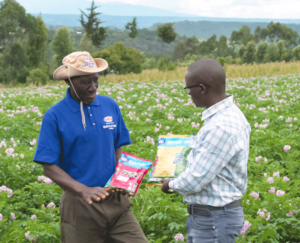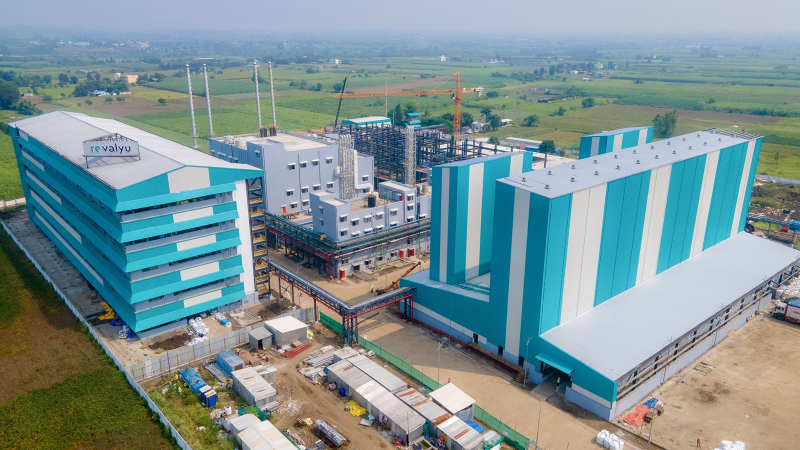Last year Osho Chemical Industries Ltd celebrated 30 years of selling Agro Chemical, Animal Health and Public Health products. The firm is based in Kenya but operates across Tanzania, Uganda, Zambia, and Malawi amongst others. But the company has more to celebrate than longevity. Over the last 30 years, Osho Chemical Industries has grown from a team of six employees to a company with 536 staff across the range of countries it operates in.
It is impressive growth, built on a foundation of caring about the people and the animals it works with.
“We are customer-focused and employee-centric,” says Rushabh Shah, Head of Sales and Marketing at Osho Chemical Industries. “We take the time to understand our customers and their requirements. We have a field team of 88 specialists who visit the farmers’ and ensure they have the products they need. We offer free advice on challenges such as disease and pests, supported by a strong country-wide network of 500 distributors with 5,000 stockists. It is a comprehensive, fully working chain from Osho as the manufacturers, to the farmers.”
Osho Chemical Industries has built its position in the market by catering for all farmers’ requirements, from public health products, to its animal health range and a comprehensive agrichemical offering. The goal is to create a one-stop shop for farmers.
 First Line of Defence
First Line of Defence
But in many ways, Osho Chemical Industries is more than a one-stop shop. It is also the first port of call when challenges arise. This could be seen nowhere more clearly than in 2020. While most people remember 2020 for Covid-19, for many farmers in Kenya that year was memorable because of a different outbreak – an outbreak of locusts that threatened food security across the region.
“We were able to come up with products that could be used to control the locusts,” Shah says. “We rapidly developed the in-house manufacturing of ULV products including biological controls. The locust invasion gave us an opportunity to really showcase our local manufacturing in terms of speed to market and the development of new products.”
Osho Chemical Industries found itself in a position to supply products to Ethiopia, Djibouti, Yemen, Tanzania, Uganda, and Kenya that could help mitigate the locust invasion. This is exactly the sort of challenge that gives Osho Chemical Industries the opportunity to show what it can do.
“We have a product development department that looks at the challenges farmers are facing and what solutions we can come up with,” says Shah. “We also work together with local universities to research and develop new products.”
Indeed, Osho Chemical Industries has working partnerships with the top three universities in Kenya, taking the products of their research to see if Osho can find commercially viable applications for them. The agro chemical product company also has its own trial site, a specialised area for testing new innovations to see which products will work to its customers’ needs and expectations.
One area that Osho Chemical Industries has paid particular attention to is sustainability, with the firm’s field teams training farmers on the best use of pesticides and chemicals in general.
“What we find is that through education we can teach farmers to use products safely,” Shah tells us. “We ensure they use the right amount and do not over-spray. We train more than three thousand farmers a month in groups, teaching them how to use these products safely and effectively. On top of that we are also pushing our biological range as well, so farmers not only use less chemicals but increase the uptake of biological solutions.”
Osho Chemical Industries works with small-scale farmers, training them in the tools, techniques and solutions that will promote sustainability and food security. At the same time, the company has committed to planting 30,000 trees by the end of next year.
 Training the Osho Way
Training the Osho Way
But as we said at the beginning, what sets Osho Chemical Industries apart is its focus on the needs of its customers and its employees, and the firm invests in the training of its employees as much as the farmers it works with.
“We launched the Osho Training Academy two years ago,” Shah says. “It is essentially a training academy for all of our staff. It has been built to equip them with the skills they need. We run a range of programs every year.”
This year the theme Osho is pursuing is wellness. The company is taking a closer look at the mental and physical health of its employees, providing full-body check-ups, ultrasounds, and counselling for those who require it.
“Through these initiatives, we are able to really retain our talent,” Shah says. “This is why we were voted for as a Great Place to Work in Kenya. It is the first time a family-owned business has been in the top three for the award.”
Among the workers, Osho Chemical Industries has been particularly focussing on investment in its machine operators.
“These are people who typically do not have a formal educational background, so what we were able to do was work with our National Institute of Training to come up with a whole course for them. We gave them a certificate in machine training that they could use to build their job profiles and grow their careers.”
The certificate proved to be one of the first in Kenya certifying on-the-job skills for people without a formal education background, paving the way for a brighter future.
And Osho Chemical Industries has a bright future ahead of it as well.
“We are expanding geographically, quite rapidly,” Shah tells us. “In the next two years, we will be looking to expand into Ethiopia, Congo and Zimbabwe. We have also set up our own biological production. Our teams are looking at biological strains found in the soils of the countries we operate in, seeking out control agents. That is quite exciting! We will soon be offering products derived from natural pathogens found in the countries we operate in.”







